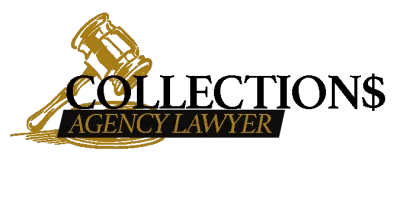When a business ignores a court-ordered payment, there are significant consequences that can impact both parties involved. It is crucial to understand the recommendations for non-recovery, options for legal action, and the collection rates and recovery system in place to address such situations. Let’s delve into the key takeaways from this scenario:
Key Takeaways
- Ignoring court-ordered payments can lead to legal consequences and further financial losses.
- Seeking legal action may involve upfront costs but can be necessary for recovering the debt.
- Collection rates vary based on the age and amount of the accounts, as well as whether they are placed with an attorney.
- A structured recovery system with multiple phases is essential for effectively pursuing unpaid debts.
- Deciding on the appropriate course of action when a business ignores a court-ordered payment requires careful consideration and understanding of the potential outcomes.
Consequences of Ignoring Court-Ordered Payments
Recommendations for Non-Recovery
When recovery seems unlikely after a thorough investigation, closure of the case may be the most pragmatic step. This means no further obligations to the firm or affiliated attorney. If litigation is not the chosen path, businesses have the option to withdraw the claim or continue with standard collection activities, such as calls and emails, at no additional cost.
Costs associated with proceeding to litigation, including court and filing fees, typically range from $600 to $700. These must be paid upfront. Should litigation attempts fail, the case is closed without further financial liability to the firm or attorney.
Businesses must carefully weigh the financial implications and likelihood of successful recovery before proceeding with legal action.
The decision to litigate or not is critical, with each choice carrying its own set of implications. Below is a summary of collection rates based on the number of claims and other factors:
- For 1-9 claims:
- Accounts under 1 year: 30% of amount collected
- Accounts over 1 year: 40% of amount collected
- Accounts under $1000: 50% of amount collected
- Accounts with an attorney: 50% of amount collected
- For 10 or more claims:
- Accounts under 1 year: 27% of amount collected
- Accounts over 1 year: 35% of amount collected
- Accounts under $1000: 40% of amount collected
- Accounts with an attorney: 50% of amount collected
Options for Legal Action
When a business decides to pursue legal action, understanding the financial implications is crucial. Upfront legal costs such as court fees and filing charges typically range from $600 to $700. These must be paid before litigation can commence. If the court-ordered payment remains unpaid, the creditor may choose to escalate the matter.
Litigation is a serious step, involving the filing of a lawsuit to recover the full amount owed, including any additional costs incurred during the legal process. Should litigation efforts fail, the case is closed, and no further fees are owed to the firm or affiliated attorney.
The decision to litigate is not to be taken lightly. It requires a careful assessment of the debtor’s assets and the likelihood of recovery.
Here’s a breakdown of collection rates based on the number of claims and other factors:
-
For 1-9 claims:
- Accounts under 1 year: 30%
- Accounts over 1 year: 40%
- Accounts under $1000: 50%
- Accounts with an attorney: 50%
-
For 10 or more claims:
- Accounts under 1 year: 27%
- Accounts over 1 year: 35%
- Accounts under $1000: 40%
- Accounts with an attorney: 50%
These rates are contingent upon the age of the account and the total amount collected, reflecting the complexity and effort required to recover the funds.
Collection Rates and Recovery System
Understanding the collection rates and recovery system is crucial for businesses facing non-payment scenarios. The efficiency of a recovery system directly impacts the likelihood of successful collection.
Collection agencies typically operate on a contingency basis, charging a percentage of the amount recovered. This rate can vary depending on factors such as the age of the account and the total number of claims. For instance:
- Accounts under 1 year: 30% (1-9 claims) or 27% (10+ claims)
- Accounts over 1 year: 40% (1-9 claims) or 35% (10+ claims)
- Accounts under $1000: 50% regardless of the number of claims
- Accounts placed with an attorney: 50% regardless of the number of claims
The decision to pursue legal action involves weighing the potential recovery against the upfront legal costs and fees. If litigation is unsuccessful, the case is closed without additional charges from the collection firm or affiliated attorney.
A multi-phase recovery system begins with attempts to contact the debtor and escalates to involving an attorney if necessary. Each phase is designed to increase pressure on the debtor and maximize the chances of payment. It’s essential for businesses to understand these mechanisms to make informed decisions about their collection strategies.
Frequently Asked Questions
What are the consequences of ignoring a court-ordered payment?
Ignoring a court-ordered payment can lead to serious legal consequences, including fines, penalties, and potential enforcement actions by the court to compel payment.
Can a business be forced to pay a court-ordered payment?
Yes, a business can be legally compelled to pay a court-ordered payment. Failure to comply with the court’s order can result in further legal action to enforce the payment.
What options does a business have if it cannot make a court-ordered payment?
If a business is unable to make a court-ordered payment, it should communicate with the court and the creditor to discuss possible payment arrangements or seek legal advice on potential solutions.
How does the collection process work for court-ordered payments?
The collection process for court-ordered payments may involve various stages, including initial attempts to contact the debtor, legal actions, and potential involvement of collection agencies or attorneys.
What happens if a business ignores recommendations for non-recovery of a court-ordered payment?
Ignoring recommendations for non-recovery may result in prolonged debt collection efforts, increased costs, and potential legal consequences for non-compliance.
What are the typical collection rates for recovering court-ordered payments?
Collection rates for court-ordered payments vary based on factors such as the age of the debt, the amount owed, and whether the case is handled by an attorney. Rates can range from 27% to 50% of the amount collected.





